** we are not quite yet accepting responses for the 2024 event, please be patient ** | looking for our 2023 Contest & winners? |
the flowers of the soul open and the sky is bright
|
|
With Springtime finally upon us and the cherry and plum trees blossoming again, following the great successes of the 2022 and 2023 editions of this contest, EJCA once again calles upon your hidden poetic talents and invites you to get creative and craft and submit a Haiku, suitably themed to celebrate the season. Prizes (and bragging rights when you are named among the best) are providing an additional incentive (should you need that extra bit of a 'nudge' to grab your pen). We are looking forward for many of you to join and re-join the fun this year! Kids: We would love to see submissions from aspiring young poets! News, winners and a selection of poems will be announced on this page and in moshi moshi and/or our social media channels. | 春がやっと訪れ、桜や梅が再び花開く中、2022年と2023年に大成功したEJCAの春の俳句大会を2024年度も主催致します。来たれ、皆様の隠れた詩的才能よ!この機会にぜひクリエイティブな才能を全開にし、春に因んだ俳句を詠んで、大会にご参加ください。 皆様にもう少し「よし参加するぞ!」という気概を持っていただくため、(入賞した際に自慢ができる権利に加えて)賞金も用意させていただきました。 たくさんの方のご参加、昨年、一昨年に加えての再参加をお待ちしております。 お子様方:若くて詩心のある皆様のご投句も楽しみにしております。 |
|
Jury: Shajin Watanabe Shajin Watanabe sensei: Watanabe sensei is a protege to Kusatao Nakamura and was awarded the Saitama Literature Award. After his retirement from teaching Japanese literature (kokugo) at Urawa Akenohoshi Girls' Senior High School, he taught haiku poetry at Saitama Police Academy for a number of years. Currently, he is the chair of Haiku Society, "Sumeraki, " while teaching haiku at numerous workshops. | -参加資格 -EJCA会員である必要はなく、どなたでも応募できます。 兼題(事前に課題として出された「季語」の意の語)を「日本語による俳句または英語による3行詩」に詠みこんだ未発表の作品を募集します。 ・投句数:1季語に1作品、計2作品まで応募可。 兼題 -ご自分で選んだ春の季語 ご投稿いただいた全ての作品は選者により審査され、それぞれの部門の入賞作品が決められます。 応募部門・賞 俳句部門(日本語部門)優秀賞賞金30ドル 準優秀賞 賞金20ドル 三行詩部門(英語部門)優秀賞賞金30ドル 準優秀賞 賞金20ドル 16歳以下の部門(英語もしくは日本語)優秀賞賞金30ドル 今回はEJCA会員の参加者の中から抽選でお一人に俳句カードゲームのセットも当たります。(賞品の郵送等諸事情でこの抽選はEJCA会員のみが対象になります。ご了承ください。) こちらのフォームを使って、登録と俳句の提出をお願い致します。またご質問等ございましたら、 haiku@ejca.org までご連絡ください。 提出期限:6月22日 皆様の俳句をお待ちしております。 渡辺舎人先生: 渡辺先生は中村草田男の弟子であり、埼玉文芸賞の受賞者です。浦和明の星女子高等学校の現代国語の教諭から引退された後、埼玉警察学校にて俳句を長年教えておられました。現在は俳句結社すめらきの代表であり、また数々の講座・句会にて俳句指導をされています。 |
Here are the 2024 prize categories. |
Best overall - Japanese language Haiku
Prize: 30$
Second best overall - Japanese language Haiku
Prize: 20$
Best Overall - English language Haiku
Prize: 30$
Prize: 20$
Brightest Young Poet (16 years of age and under)
Prize: 30$
Among all participants from EJCA (current EJCA membership), we will also randomly select one winner to receive a Haiku-poetic card game: |

(will be added after the event has closed and winners have been announced) |
From wikipedia: Haiku (俳句) is a type of short form poetry originally from Japan. Traditional Japanese haiku consist of three phrases that contain a kireji, or "cutting word", 17 on (phonetic units similar to syllables) in a 5, 7, 5 pattern, and a kigo, or seasonal reference. Similar poems that do not adhere to these rules are generally classified as senryū. Haiku originated as an opening part of a larger Japanese poem called renga. These haiku written as an opening stanza were known as hokku and over time writers began to write them as stand-alone poems. Haiku was given its current name by the Japanese writer Masaoka Shiki at the end of the 19th century. What you should keep in mind: For haiku inspiration, look closely at everything around you in nature, at home, at school, and at work. Write your draft of a haiku, letting yourself be free and creative. Then ask the following questions about your haiku to help you improve them.
| What you should keep in mind (continued):
(adapted from Michael Dylan Welch's excellent blog: https://www.graceguts.com/essays/haiku-checklist) |
Please contact: haiku@ejca.org








